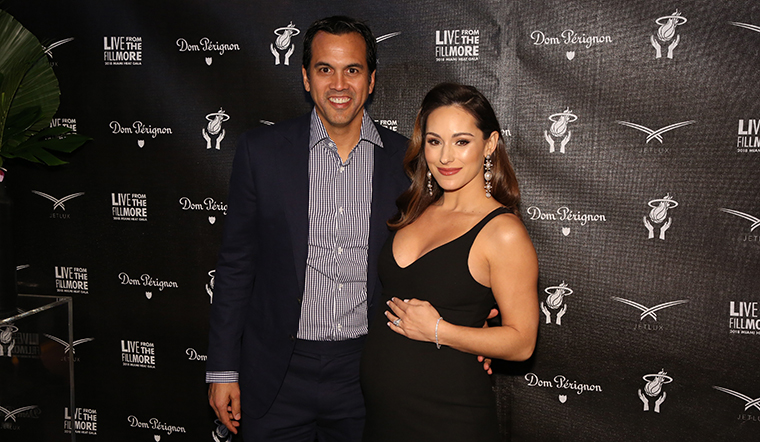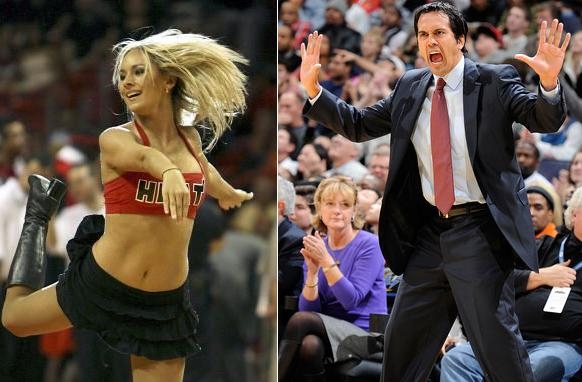Six years removed from four straight Finals trips, two celebratory visits to the White House, and as much internal and external pressure as any basketball team ever assembled, Erik Spoelstra has yet another opportunity to coach a world champion. The difference between then and now is that with LeBron James, Chris Bosh, and Dwyane Wade, Spoelstra always had the most talent on his side. It was a lose-lose for him: Win and it’s because of the players; fail and it’s because he wasn’t up for the challenge.
But this year, literally no one expected the Miami Heat to be back at the mountaintop—on the first day of the playoffs and the last day of the preseason, they were given a 2% chance to crack the Finals. Yet here they are. For Spoelstra, it’s one of the most impressive coaching feats in recent history, and cements him as not only the most composed and assured basketball coach in the world, but also the only one who can reasonably be viewed as the face of an NBA franchise, outside of Gregg Popovich.
In the past 50 years, only three coaches have appeared in more Finals than Spoelstra’s five: Phil Jackson, Pat Riley, and Pop. That’s it. In this run, he leapt past Riley in career playoff win percentage and the Dream Team’s Chuck Daly in playoff wins. Spoelstra has four more victories in this postseason than he did in the previous five years combined, but that disappointment had more to do with the bloated, unnecessarily expensive roster sewn together on the fly by Riley after James left than Spoelstra’s coaching acumen.
Miami’s current roster is more reflective of the gritty, complementary, trusting groups they strive to have, with key players who are young enough—Bam Adebayo (23) and Tyler Herro (20) will earn little more than half of what Andre Iguodala is due next season—to form a nucleus that can ensure prosperity for the foreseeable future.
Spoelstra embodies that selflessly competitive ethos better than any other coach, in a league brimming with extremely capable strategists. In Miami, his personality is a tone-setter. And with that comes respect at all levels in the organization and unilateral commitment by all to do their job, even as it evolves every day. When he landed with the Heat 25 years ago, Spoelstra started out as a video coordinator. But that title didn’t accurately describe his myriad responsibilities, which included but were not limited to fetching dry cleaning and making sandwich runs for the staff. He’s been with the Heat just seven fewer seasons than the 71-year-old Popovich has been in San Antonio; the Spurs first hired Pop as an assistant coach when he was nine years younger than Spoelstra is today.
That longevity is unique in a league that churns through head coaches and prioritizes players. The 49-year-old Spoelstra saw the seeds of the Player Empowerment era get planted in his backyard, and as they sprouted, no coach benefited and suffered more. Nearly a decade later, he’s arguably the most important nonplayer in the entire league: resilient, everlasting, respected, and willfully egoless, with full understanding that his job status will always be (at least) as firm as any players beneath him. It took a quarter of a century, but Miami is officially Spoelstra’s town.



